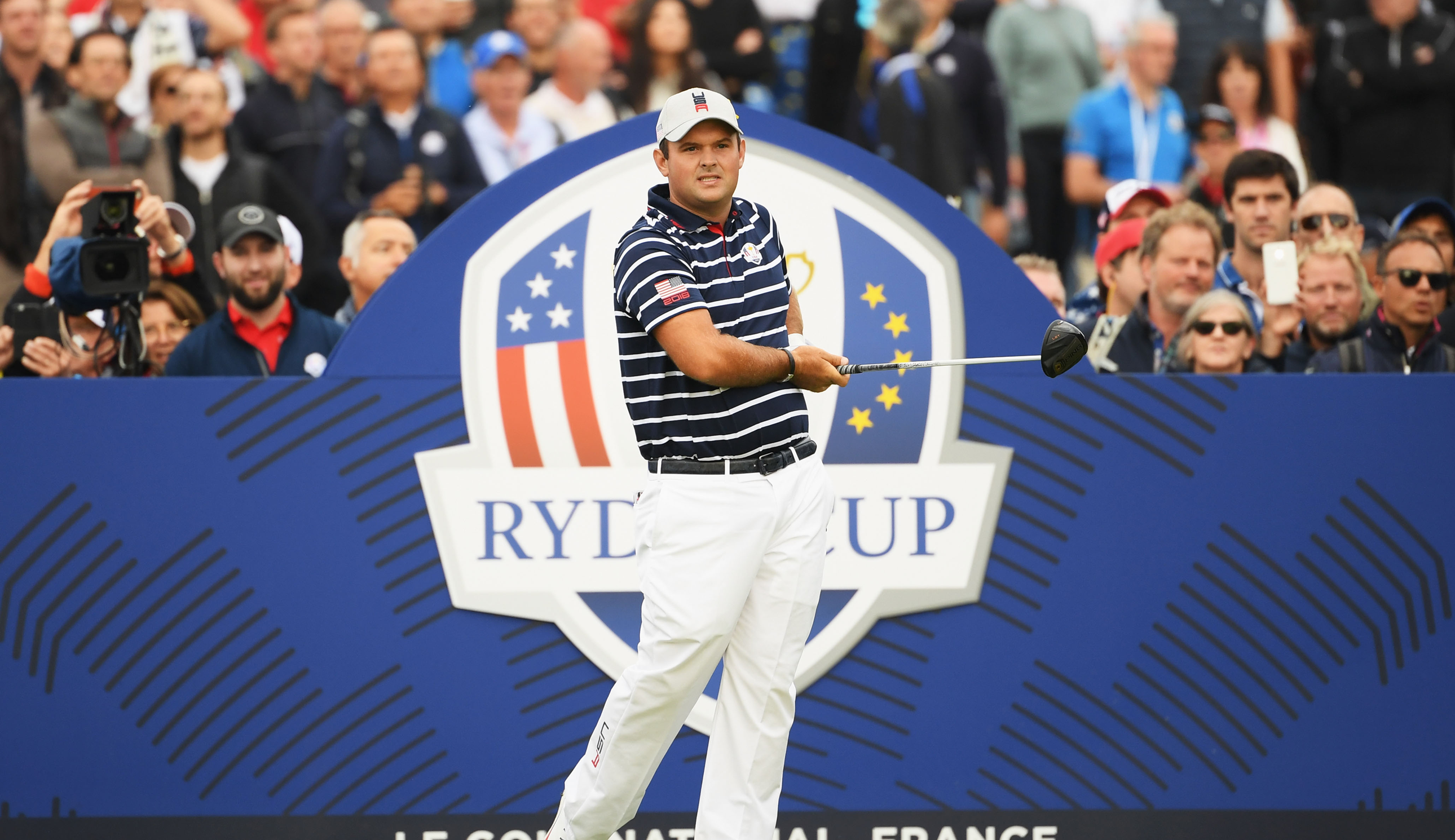Fact or Fiction: Patrick Reed “Captain America” Should Be on the U.S. Ryder Cup Team at Bethpage
The debate over whether Patrick Reed, famously dubbed “Captain America” for his fiery Ryder Cup performances, should be selected for the U.S. team at Bethpage Black in 2025 has ignited passionate discussions among golf fans and analysts. Reed’s undeniable talent, competitive spirit, and clutch play in past Ryder Cups make him a polarizing yet compelling figure in the conversation. With Keegan Bradley as the U.S. team captain, the decision to include or exclude Reed is fraught with complexity, balancing performance metrics, team dynamics, and public sentiment. As posts on X and recent golf developments highlight, the case for Reed’s inclusion is both fact-based and clouded by controversy, making it a topic ripe for examination.

Patrick Reed’s Ryder Cup record is a strong starting point for those advocating his inclusion. With a 7-3-2 record across three appearances (2014, 2016, 2018), Reed has proven himself a formidable competitor in the biennial event. His ability to thrive under pressure, particularly in match-play formats, has earned him a reputation as one of America’s most clutch performers. In 2016, his epic singles match against Rory McIlroy at Hazeltine was a masterclass in intensity and skill, showcasing his ability to elevate his game when it matters most. Supporters argue that this experience is invaluable, especially at a venue like Bethpage Black, where the raucous New York crowds are expected to amplify the pressure. Recent posts on X underscore this sentiment, with fans and LIV Golf advocates pointing to Reed’s 2025 LIV Golf Dallas win and third-place finish at the Masters as evidence of his current form.
Beyond his on-course performance, Reed’s nickname “Captain America” reflects his ability to galvanize fans and teammates alike. His unapologetic competitiveness and willingness to embrace the villain role against European opponents make him a unique asset. At Bethpage, where the atmosphere is likely to be electric, Reed’s ability to feed off crowd energy—whether supportive or hostile—could be a strategic advantage. Posts on X, such as those from LIV Golf Nation, highlight the thousands of fans chanting for Reed’s inclusion, suggesting that his presence could create a spectacle that resonates with golf enthusiasts. This fan support, coupled with his proven track record, bolsters the argument that Reed’s exclusion would be a missed opportunity to leverage his unique charisma and skill set.

However, the case against Reed’s inclusion is equally compelling, rooted in both tangible and intangible factors. His move to LIV Golf in 2022 has created a divide within the golfing world, with some arguing that his departure from the PGA Tour signals a lack of loyalty to the traditional structures that feed into Ryder Cup selections. While LIV Golf performances are increasingly recognized, the politics of the sport remain a hurdle. Some X posts, like one from 2023 by PGALIVHotTakes, suggest that “politics” and concerns about Reed being a poor “locker room fit” could overshadow his qualifications. These concerns are not new; Reed has long been a polarizing figure due to past controversies, including allegations of rules infractions and strained relationships with teammates. Critics argue that team cohesion, a critical factor in the Ryder Cup’s high-stakes environment, could be jeopardized by Reed’s presence.
Moreover, while Reed’s 2025 performances are notable, they must be weighed against the depth of American talent. Players like Scottie Scheffler, Xander Schauffele, and Collin Morikawa are locks for the team, leaving limited spots for captain’s picks. Reed’s recent results, while strong, face competition from other LIV and PGA Tour players who have also posted impressive finishes. For instance, his third-place Masters finish is remarkable, but other Americans have consistently performed across majors and PGA Tour events, potentially edging him out in a numbers-driven selection process. A post on X by CPowers14 captures this tension, acknowledging Reed’s case but questioning the likelihood of his selection given the political and competitive landscape.
The decision ultimately rests with Keegan Bradley, whose leadership style emphasizes passion and unity. Bradley’s own underdog story could align with Reed’s narrative, but he must also consider the long-term implications of selecting a LIV golfer amid ongoing tensions between tours. Reed’s supporters argue that his Ryder Cup prowess transcends these politics, pointing to his 5 top-5 finishes on the LIV Tour in 2023 as evidence of sustained excellence. Yet, detractors counter that Bradley’s focus on team chemistry may prioritize players with stronger interpersonal ties.

In conclusion, the question of whether Patrick Reed belongs on the U.S. Ryder Cup team is a blend of fact and fiction. His statistical achievements and Ryder Cup heroics are undeniable, supported by fan fervor and recent competitive success. However, the fiction lies in the idealized narrative of Reed as an automatic pick, ignoring the complexities of team dynamics and golf’s fractured landscape. At Bethpage, where passion and performance will collide, Bradley’s decision will hinge on whether he sees Reed as a unifying force or a divisive risk. For now, the debate rages on, fueled by fans, stats, and the enduring allure of “Captain America.”




